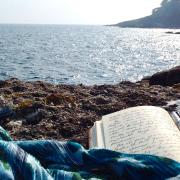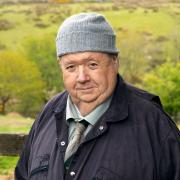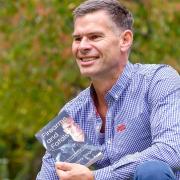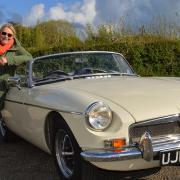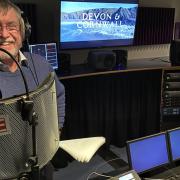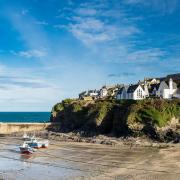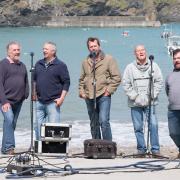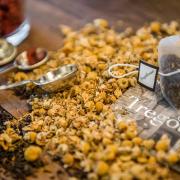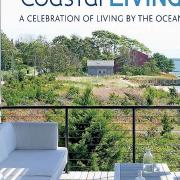Legendary drummer Mick Fleetwood revisits the music of Fleetwood Mac and memories of its founder Peter Green. It’s amazing to think that it all began for Mick in Redruth

Is there no end to the talent that stars in Cornwall and finds fame around the world? Actors, singers, writers and so many others who have risen to the top in their chosen careers began life in Cornwall and Mick Fleetwood was one of them.
“I was born in Redruth,” said Mick. “I don’t honestly remember much about it because my father was in the RAF and we moved around a lot. He was a Wing Commander which is pretty exciting and he was often transferred to various parts of the world. You might find yourself in Egypt and then you were off to Norway, a great way of learning about different countries and cultures but it always fascinated me to know more about Cornwall.
“I was mostly educated at boarding schools to give me some stability as I was growing up but it was only a little later that I appreciated Cornwall rather more.

“I liked music from as early an age as I can remember, and I grew up during the time of the late50s and 60s so you could say that I was influenced by that period of music history. My Dad aso helped because he bought me my first drum kit when I was 13. It was set up in our garage and I used to play along to records of the Everly Brothers and Cliff and The Shadows. I liked all sorts of music including the Rolling Stones, Bo Diddley and others. I was into drama too and when I was boarding at Sherborn School, I got a part in the school production of Hamlet – I was cast as Ophelia, a young Danish noblewoman. It was a boys’ school, so any female parts had to be played by lads. There I was, tall for my age and with a hint of a stubble, trying to be taken seriously as Ophelia!
“Playing drums became a bit more serious when I was 15 and living in London, I think that is where the career really started, and I have been playing ever since. One of the good things is that you get to travel and see the world and it was through going from gig to gig that I began to see more of Cornwall.
“We often had engagements in the area, so I got the chance to see a bit more of where I had been born and I liked what I saw. The culture of Cornwall is fantastic, it is so completely different and that has always appealed to me. Cornish music is different too and I found I liked folk music and shanties, especially from the county. I couldn’t say for sure, but I am pretty certain that some of the music we have created through the years can claim to have been of Cornish influence.”
Mick spends much of his time living oversees but he enjoys returning to Britain for tours, promotions and just visiting friends and he tries to see something of Cornwall too.
“I don’t think you ever forget the place where you were born and there’s a kind of magnet that draws you back to it, even if you were only there for a short time. It has happened to me and I have always found it fascinating to see Redruth and know that wherever I have travelled or lived, it all began in Redruth and I can justifiably say that I am Cornish.”
Mick’s travels have not only been geographical, he has also journeyed far in the music industry. He moved to Notting Hill in London to live with his sister and he got a job at the famous Liberty’s store in Regent Street. The job didn’t last very long because he was fired for not working hard enough.
“I didn’t really want to be there,” he said. “All that really interested me was music. A neighbour called Peter Bardens heard me playing in the garage and got me linked up with a band called The Senders. It didn’t last but I learned a fair bit in a short time, met a few other people in the music business and that was me, on the launching pad and even more in love with music.
“Music was breaking down barriers all the time when I was growing up with it and it was the kind of trademark of youth. You had to really be able to play in those days. There were no shortcuts, no synths, you had to be able to deliver live. We used to play all kinds of places including pubs and they used to get packed. As an example, I remember playing in a pub called The Nag’s Head in Brixton which could maybe get 60 people in it, and there used to be 250 or 300 people in there. And those were the sorts of places our music came out of. That was the beginnings of what would later become Fleetwood Mac. All the bands and groups used to do the same – you would play a lot of covers of whatever was popular and then throw in some of your own stuff and people either liked it or hated it. Either way, you got your own music in front of people.
“Pubs have been worth their weight in gold to the music industry because they have provided gigs where bands could learn their trade and get a following. In Redruth the Railway Inn has had live music for years and still does, I think. There are many places in Cornwall where bands have learned their trade.
“I can’t believe that it is more than 50 years ago that Jeremy Spencer, Bob Brunning, John McVie, Peter Green and myself got together and formed the basis of what became Fleetwood Mac. In some ways it seems like a million years ago but in other ways it was just last week.”
Fleetwood Mac sold more and 100 million albums. “I suppose it sounds good to be called a legend, but I don’t really think it applies to me personally,” said Mick. “I’m just a musician who loves music, enjoys travelling and seeing people and places. That’s why I still do it, it is the music that drives you. If you ask people like The Who, The Stones and others they will all tell you the same thing. They don’t do it for the money. If it was for that reason, they could all have retired years ago, but you never really lose that excitement and drive that you have when you first start to play as a kid. What you wanted then you still want now. I’m not a legend – Cornwall is a legend because it has such a fantastic, diverse history. I just happen to have been born there and I am always pleased to visit or even just pass through. Cornwall is like music; it has a special magic that you can’t quite put into words. I am proud to be a musician and I am proud to be able to say that I am from Cornwall.” u
Mick Fleetwood and Friends Celebrate the Music of Peter Green is released in more than 500 cinemas for two nights only on 2 and 7 June. Find out more at mickfleetwoodandfriends.com




